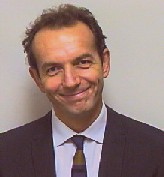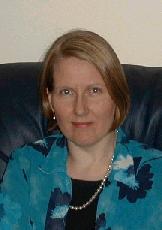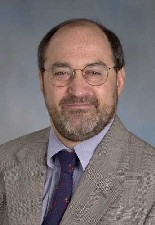| |
Bayesian Biostatistics: Introduction and Recent Advances
2003 Short Course & Symposium
Biosketches
Don Berry
Donald Berry is an international expert in the field of biostatistics in medical research.
He holds the Frank T. McGraw Memorial Chair for Cancer Research at The University of Texas
M. D. Anderson Cancer Center, where he is chairman of the Department of Biostatistics. Dr. Berry
also serves as the faculty statistician on the Breast Cancer Committee of the
Cancer and Leukemia Group B (CALGB), a national oncology group.
A native of Massachusetts, Dr. Berry received his Ph.D. in statistics from Yale University, and
previously served on the faculty at the University of Minnesota and at Duke University,
where he held the Edger Thompson Professorship in the College of Arts and Sciences.
The author of more than 165 published articles as well as several books on biostatistics in
medical research, Dr. Berry has been the principal investigator for numerous medical research
programs funded by the National Cancer Institute and the National Science Foundation.
Dr. Berry is a statistics editor for the Journal of the National Cancer Institute and
associate editor for Breast Cancer Research and Treatment. He is an elected member of the
International Statistical Institute, and is a Fellow of the American Statistical Association
and of the Institute of Mathematical Statistics.
|
 |
Bradley Carlin
Bradley Carlin has been an active researcher and instructor in methods and computing for Bayesian
data analysis for more than 12 years. His research interests include statistical applications in
AIDS research, spatial disease mapping, longitudinal studies, and the use of computation in the
development of Bayes and empirical Bayes methods for such projects. He is a frequent speaker at
national and international conferences on Bayesian methods, as well as invited short courses,
departmental seminars and colloquia.
Professor Carlin has published more than 65 papers in refereed journals and in books, and was
co-author of a paper that was honored as the JASA Special Invited Applications Paper in 1992.
After earning a Ph.D. in statistics from the University of Connecticut, he served as the visiting
assistant professor of statistics at Carnegie Mellon University for two years before joining the
faculty at the University of Minnesota School of Public Health, Division of Biostatistics.
Professor Carlin is an associate editor in the areas of theory and methods for JASA, and is
an elected member of the International Statistical Institute, and a Fellow of the American Statistical Association.
The American Public Health Association honored Professor Carlin with the Mortimer Spiegelman
award for 2000---an annual recognition of important contributions in public health made by a statistician under the age of 40.
|
 |
Andy P. Grieve
Andy Grieve is the director of the Statistical Research Center of Pfizer
Global Research and Development, based in Sandwich in the United Kingdom. He is also currently
serving as a visiting professor of statistics at the University of Kent. Grieve's primary
research interest is in applying Bayesian methodology to pharmaceutical research and development.
Dr. Grieve received his Ph.D. in Statistics in 1992 from the University of Nottingham, UK.
In addition to his work with Pfizer over the past 7 years, he has more than 20 years of
prior experience in the pharmaceutical industry. Through positions with Ciba-Geigy, including 8
years at its Switzerland offices, and with ICI/Zeneca thereafter, Dr. Grieve gained experience
in all areas of drug discovery and development, including clinical phases, toxicology, and
pharmaceutical process development.
Dr. Grieve has published more than 20 research papers and articles. He is currently on the
editorial board of Statistics in Medicine and the Journal of Pharmaceutical Statistics,
and previously served on the editorial boards of Applied Statistics and Statistical
Methods in Medical Research. He is on the advisory boards for the M.Sc. courses at the
Universities of Leicester and Bath, and has served on the Statistics Grant Panel of the
Engineering and Physical Sciences Research Council. Dr Grieve is a chartered statistician and
is a Fellow of the Royal Statistical Society. He has served as chair of PSI
(Statisticians in the Pharmaceutical Industry) and is currently president-elect of the Royal
Statistical Society. Dr Grieve previously served as visiting professor of statistics at the
University of Keele and at the Imperial College, University of London.
|
 |
Lurdes Inoue
Lurdes Inoue's research focus has been the development and implementation of Bayesian models
for the design and analysis of clinical trials for drug and medical devices.
She obtained a Ph.D. in statistics and decision sciences at Duke University in 1999, and joined the
Department of Biostatistics at The University of Texas M. D. Anderson Cancer Center as a research
associate in September of that year. In September, 2002, Dr. Inoue joined the faculty of the
University of Washington in Seattle as an assistant professor in the Department of Biostatistics.
|
 |
Rob Kass
Rob Kass has been on the faculty of the Department of Statistics at Carnegie Mellon University
since 1981, and has been department head since 1995. He received his Ph.D. in statistics from
the University of Chicago in 1980. Professor Kass' areas of research focus have been geometrical
statistics, Bayesian inference, and most recently neuroscience. He currently serves on the
executive committee of the joint Carnegie Mellon-University of Pittsburgh Center for the Neural
Basis of Cognition.
Rob Kass is a co-author of the book, Geometrical Foundations of Asymptotic Inference (with Paul Vos,
published in 1997 by John Wiley and Sons). He served as the first vice president for the
International Society of Bayesian Analysis, and as chair of the Section for Bayesian Statistical
Science of the American Statistical Association. In 1991, he began the series of workshops,
"Case Studies in Bayesian Statistics," which are held at Carnegie Mellon every odd year, and
has been co-editor of the workshop's proceedings volumes.
Professor Kass has also served on the editorial boards of The Annals of Statistics,
Biometrika, the Journal of the American Statistical Association, and Statistics
in Medicine, and was executive editor of Statistical Science from 1992 to 1994. He
was elected Fellow of the American Statistical Association in 1990 and of the Institute of
Mathematical Statistics in 1991.
|
 |
Peter Müller
Prior to doctoral studies at Purdue University, Professor Müller received graduate degrees in
computer science and in mathematics and physics education from the Technical University of Vienna
and the University of Vienna in Austria.
In addition to his current faculty membership at M. D. Anderson, Professor Müller has been a
member of the faculty of the Institute of Statistics and Decision Sciences at Duke University
since 1991. His research has included work with the Center for Multi-Scale Modeling and
Distributional Computing at Duke.
Peter Müller's research interests include numerical integration in Bayesian statistics,
nonparametric Bayes, longitudinal data models, and pharmacokinetic / pharmacodynamic models.
He has published numerous books, book chapters and research articles, and has served as the
associate editor for Biometrics and Estadistica.
As a visiting scholar, Professor Müller has held academic positions at:
- Universidad Catolica,Santiago, Chile (summer 1999)
- Consiglio Nazionale delle Ricerche, CNR-IAMI, Milano, Italy (summer 1997)
- Universidad Politecnica de Madrid, Spain (summers 1995, 1996)
- Universidad Simon Bolivar, Caracas, Venezuela (March 1996)
- Institut für Statistik und Ökonometrie, University of Basel, Switzerland (summers 1990, 1993)
|
 |
Giovanni Parmigiani
Giovanni Parmigiani is an expert in Bayesian modeling and simulation, particularly in its
application to medical decision making and cancer genetics and genomics. He has more than a
decade of experience in quantitative modeling for support of translational research, with
emphasis in the areas of risk prediction using molecular markers, genetic counseling, and
decision analysis.
Dr. Parmigiani holds a Ph.D. in statistics from Carnegie Mellon University, having earned the
1991 Savage award for his work in the area of decision making. Subsequent work on breast cancer
genes earned him the Myrto Lefkopoulou lecture at Harvard School of Public Health in 1999.
Dr. Parmigiani is an associate professor of oncology at Johns Hopkins School of Medicine,
where he holds joint appointments in the Departments of Biostatistics and Pathology.
Dr. Parmigiani is a Fellow of the American Statistical Association, serves as an associate
editor for JASA and Biometrics, as an editorial board member of Medical Decision
Making, and was elected to serve as chair of the ASA section on risk analysis for 2002.
|
 |
Gary Rosner
Gary Rosner received his doctoral degree in biostatistics from Harvard University.
He currently holds faculty memberships in the Department of Biostatistics at M. D. Anderson, and
in the Graduate School of Biomedical Sciences at The University of Texas Health Science Center--Houston.
Professor Rosner holds adjunct appointments with the Department of Statistics at Rice University,
and with the Department of Biostatistics and Bioinformatics at Duke University Medical Center.
In previous years, Professor Rosner held faculty positions
with the Institute of Statistics and Decision Sciences at Duke University,
and with the Department of Epidemiology and Public Health at Yale University Medical School.
He has served as a faculty statistician for the statistical office of the Cancer and Leukemia
Group B (CALGB) since 1990 and is the co-principal investigator for an ongoing NIH grant
investigating the statistical issues of population pharmacokinetics and dynamics.
Professor Rosner has published over 60 articles in refereed journals, has written chapters
for more than four book publications, and served on the advisory board of The Biometric Society,
ENAR for a period of two years. He provides referee guidance for many journals, including the
American Journal of Public Health, Biometrics, Biometrika, Controlled
Clinical Trials, the Journal of Pharmacokinetics and Biopharmaceutics, Medical &
Pediatric Oncology, Radiation Research, and Statistics in Medicine.
|
 |
Dalene Stangl
Dalene Stangl specializes in the application of Bayesian statistical methods and decision making
to mental health, health policy and the social sciences. She is currently serving as director of
the Institute of Statistics and Decision Sciences at Duke University, where she has been a faculty member
for over seven years. She is also a professor of the practice of statistics and public policy at
Duke. During this same period, Professor Stangl has served as adjunct professor
in the Biostatistics Department at the University of North Carolina. Previously, she served as
the director of developmental biostatistics and research design at the Center for the Study,
Prevention, and Treatment of Disruptive Behavior Disorders at Duke University Medical Center,
and as a member of the faculty of the Division of Biometry and Medical Informatics.
Professor Stangl obtained her Ph.D. in statistics from Carnegie Mellon University. Additional
research experience included six years with the Department of Statistics at Carnegie Mellon
University and five years in the Department of Psychiatry at the University of Iowa.
Professor Stangl has been the principal investigator for numerous studies, including research
funded by the National Science Foundation, the National Institute of Mental Health, and the
State of North Carolina. She is a frequent guest speaker at professional meetings and short
courses, and has published numerous book chapters and articles in peer-reviewed journals.
Professor Stangl is a co-author of the book, Bayesian Biostatistics, and is a co-editor of the
book, Meta-Analysis in Medicine.
|
 |
Peter Thall
Professor Thall has distinguished himself as an expert in the development and application of Bayesian
methodology to the design of cancer clinical trials, introducing innovative ideas for conducting
phase I and phase II trials. These new designs provide more flexible monitoring schemes and
dose-finding methods based on multiple events, including toxicity, response time, and survival
time. Dr. Thall's seminal work has established several new paradigms for cancer clinical trials.
In the past 11 years, he has assisted researchers at M. D. Anderson and other
institutions in designing over 300 clinical trials.
Dr. Thall is the author or co-author of over 85 research papers and book chapters in statistical
methods, probability, clinical trial design, and medicine. He has served as the biostatistician
on funded program projects in acute myelogenous leukemia, chronic myelogenous leukemia,
neuro-oncology, phase II/III clinical trials, and soft tissue sarcoma.
Currently, he is the principal investigator of the NCI R01 grant "Statistical Methods in Complex
Cancer Trials." Dr. Thall has presented over 60 invited talks at professional meetings,
universities, institutes and pharmaceutical companies. He has refereed articles submitted to
numerous statistical and medical journals, and has served as an associate editor for the
Journal of the National Cancer Institute and Statistics in Medicine.
|
 |
Short Course & Symposium Main Page
| |









